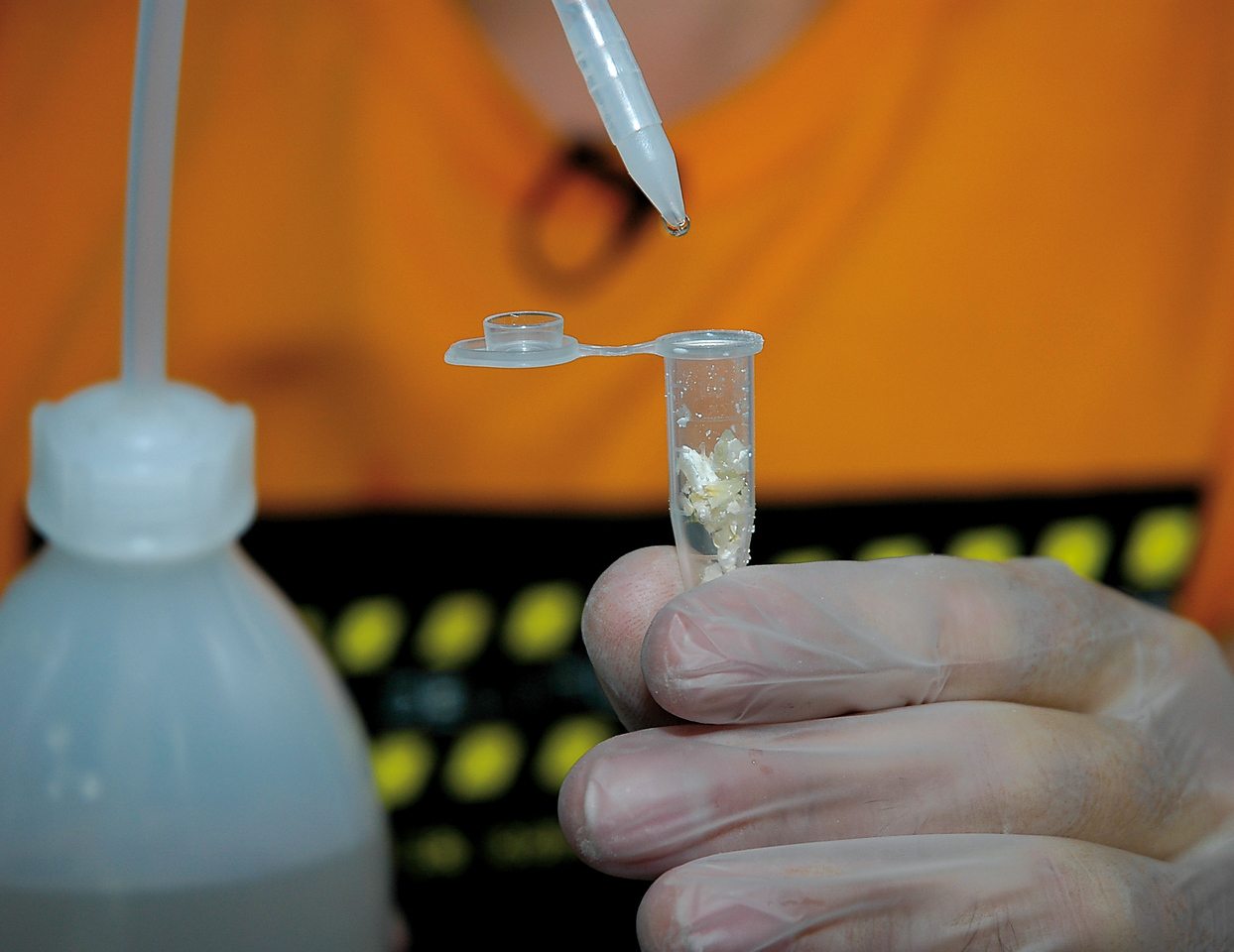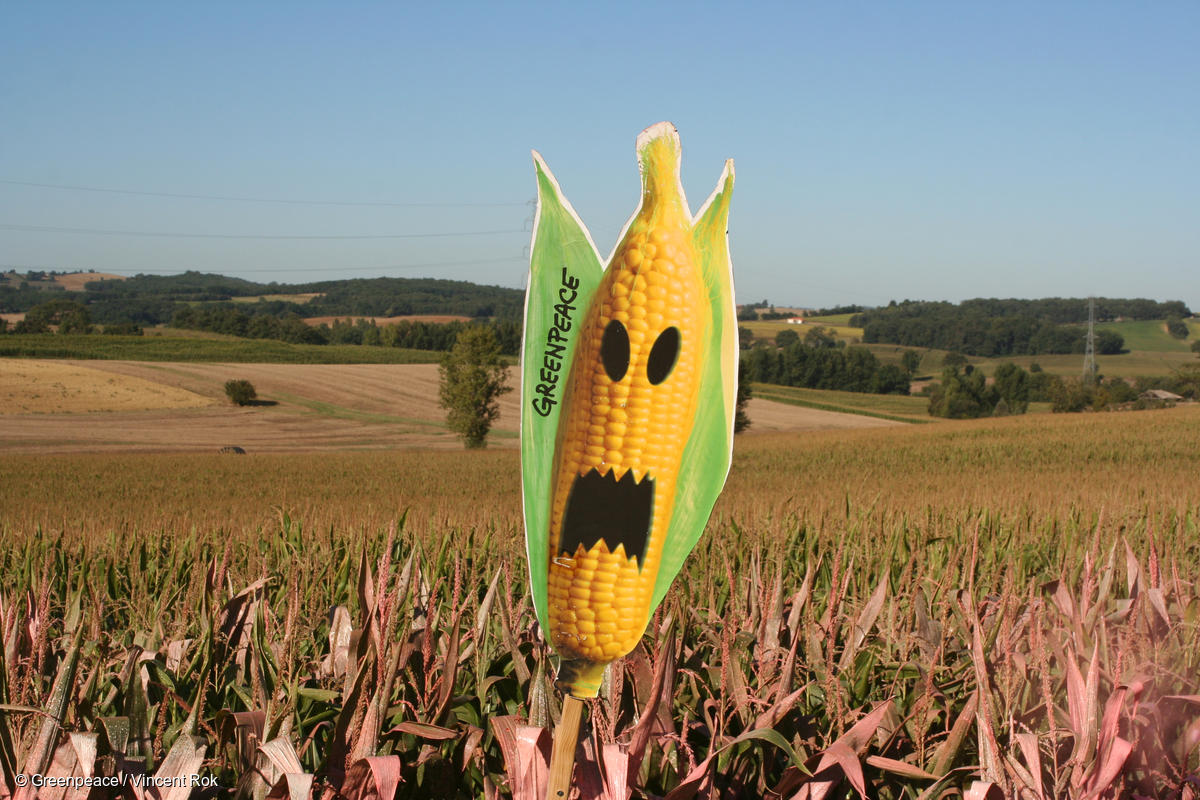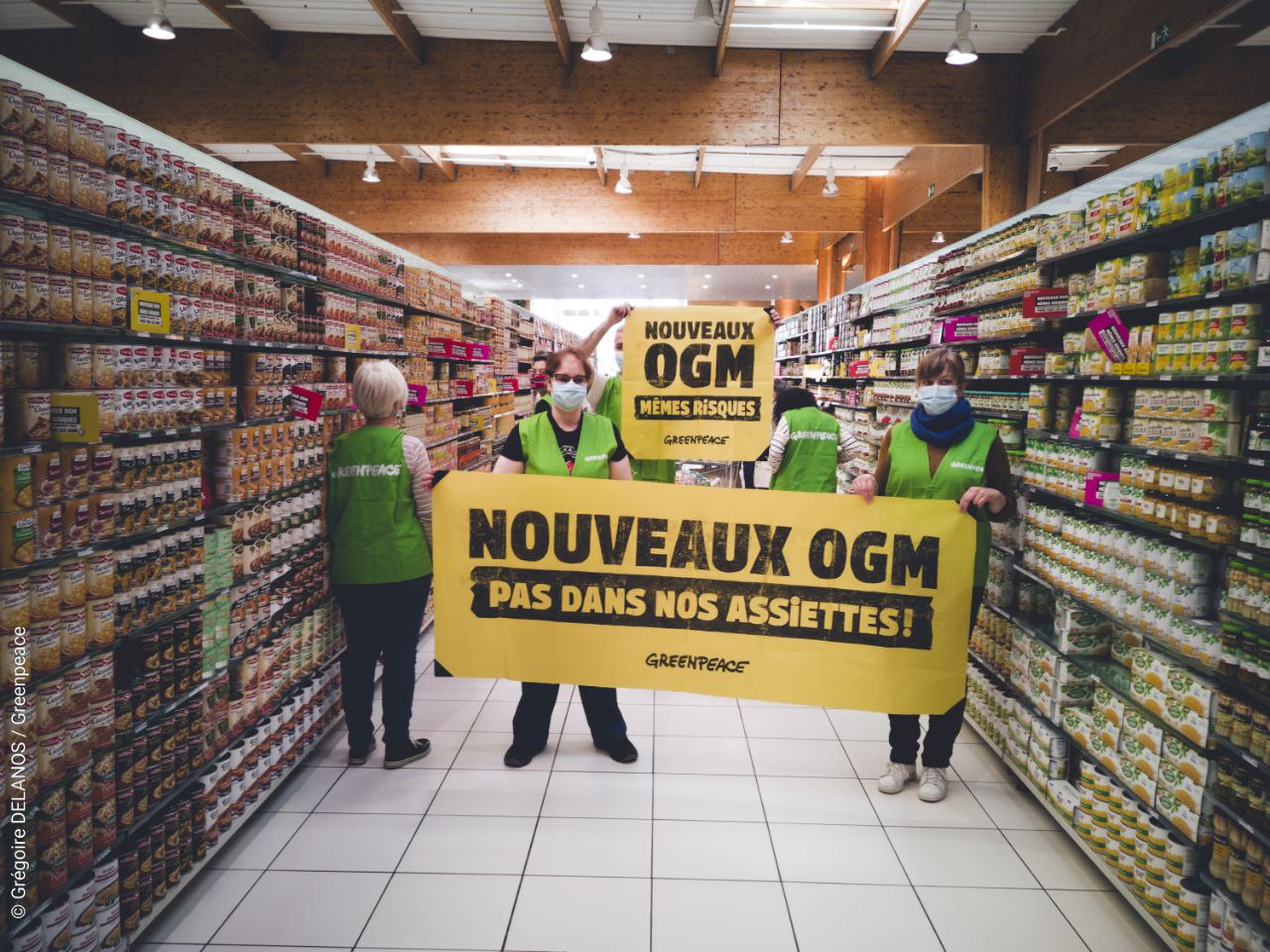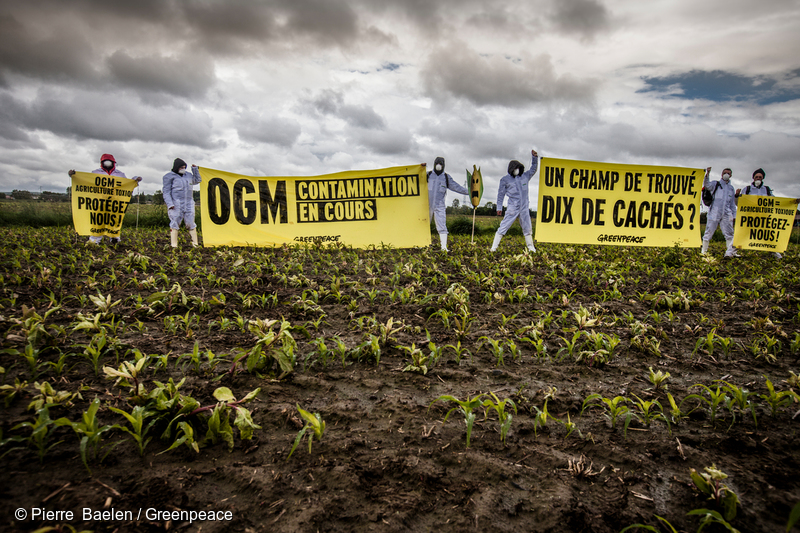All articles
-
New brand of GMOs would escape safety testing under EU Commission plan – briefing
A summary of how the European Commission's plans to deregulate new GMOs may affect the environment, farmers, consumers, retailers, governments and human health.
-
GMO deregulation disregards safety and consumer rights, Greenpeace
The European Commission’s proposed deregulation of a new strand of genetically modified organisms (GMOs) disregards safety and consumer rights, Greenpeace has warned.
-
NGO letter to EU Commission on new GMOs
Greenpeace wrote the the European Commission to warn against the far-reaching deregulation of GMOs in agriculture and food.
-
EU Commission opening the door for new GMOs
The European Commission is gearing up to exempt new genetically modified organisms (GMOs) from current environmental rules, Greenpeace has warned.
-
New GMOs: danger ahead
The use of so-called gene (or genome) editing techniques like CRISPR-Cas could not only exacerbate the negative effects of industrial farming on nature, animals and people, but it could turn both nature and ourselves (through the food we eat) into a gigantic genetic engineering experiment.
-
GMO status of Cibus SU Canola
In September, an open-source method to detect a gene-edited, herbicide-resistant canoladeveloped by US company Cibus, was published in the scientific journal Foods. SU Canola is not authorised for placing on…
-
Gene edited crop can’t stand the light of day
by Franziska Achterberg, Greenpeace EU food policy director
-
Letter to Commissioner Kyriakides on open-source detection test for first commercialized gene-edited plant ready for integration in routine EU GMO controls
Greenpeace, on behalf of ARGE Gentechnik-frei (Austria), IFOAM Organics Europe and VLOG – Association Food without Genetic Engineering (Germany), wrote to the European Commission to inform about the successful development…
-
First open source detection test for a gene-edited GM crop
Brussels - Greenpeace, together with other non-governmental organisations, non-GMO food associations and a food retailer, announced that the first-ever public detection method for a gene-edited crop has been successfully developed and published. [1] The new research refutes claims by the biotech industry and some regulators that new genetically modified (GM) crops engineered with gene editing…
-
Briefing: First open source detection test for a gene-edited GM crop
A group of NGOs and non-GMO food associations from Europe, New Zealand and the USA and a leading European retailer have published a detection method for the first commercialised genetically…








